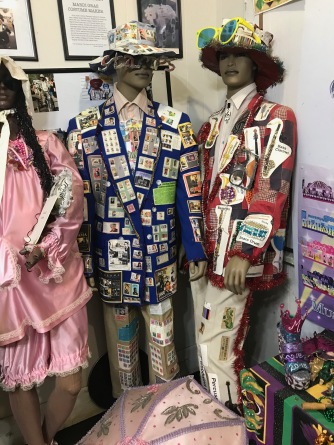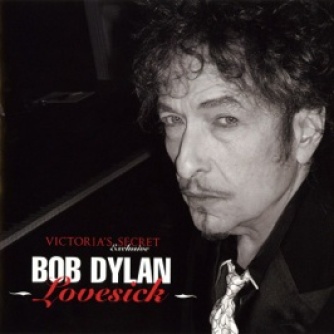
Nor for the towering dead/ With their nightingales and psalms
Dylan Thomas, “In My Craft or Sullen Art”
Hamlet describes death as “the undiscovered country from whose bourne/ No traveler returns,” phrases that betoken death’s mystery, a subject so profound that you can almost get away with slipping in a moth-eaten word like “betoken.”

Don’t say “cheese”
On the other hand, Wallace Stevens designates Death as the mother of beauty.

Woody Allen pigeonholes it as one of the two things that come only once in a lifetime.*

*The other is sex
***
My first 3-D encounter with a human’s death happened when I was around twelve or so on a rare Sunday when we’d all gone to church together, even Daddy. In those days TV consisted of a couple of channels, so we would occasionally drive for amusement, motoring around and through Summerville, circumnavigating the past – riding past clapboard houses where we used to live, past our former maid’s dilapidated cottage, past the crossroads where my grandfather’s gas station had stood before it burned down.
On this particular summer’s day, we encountered a cluster of hysterical people on the sidewalk right across the street from Dorchester County Hospital. The windows of our un-air-conditioned Ford Falcon were down, and as we rolled past, I witnessed a Mahalia-Jackson-sized woman throwing her hands back in the air while screaming over and over, “My Mama left me, My Mama left me!”
As our car crawled on, I caught sight of the outline of the body, already covered, the screams receding as Daddy sped up and drove straight home.
Later that day, we traveled to Lake Moultrie with our neighbors, another rarity, and I saw Mrs. Delasanti’s pubic hair peeking out of her bikini bottoms.
A first for me. Forbidden. Thrilling.
So, on that Sunday, I sort of got a peek at both sides of the coin, the tomb and womb, and, unfortunately, the tomb won out. Death had ruined my day.
“My Mama’s left me, My Mama’s left me!” rang out as I lay me down to sleep that night.
Horace Walpole has described life on this planet about as pithily as anybody: “This world is a comedy for those who think, a tragedy for those who feel.”

Mahalia Jackson
***
Over the years, I have become much more of a thinker than a feeler. I’d like to believe that education, fairly wide reading/traveling, my dabbling in Buddhism, and maturity have brought about my detachment (rather than a callousness acquired from the onslaught of horrific images I’ve been bombarded with in over a half-century of a media-saturated life: JFK’s shattering skull, Vietnamese monks immolating themselves, starving African toddlers with bloated bellies, Donald J Trump raising his hand to take the oath of office).
Of course, since that first encounter with death, I have witnessed others, loved ones, shuffling off their mortal coils. As I held my mother-in-law’s hand as she was in the thrall of dying, she looked up at the ceiling, gazing intently at whatever she saw up there, and said, squeezing my hand, “Rusty, this is overwhelming.”
My beloved Judy had a harder time, though mummified by morphine, her breathing labored, yet right before the end, she quieted down, and I recited to her over and over “may flights of angels sing thee to thy rest,” and I’m also almost positive she was at least dimly aware of my presence and words because she sort of smiled for awhile before she became still.
***
I have an oncologist friend who once told me that out there (wherever that is) lurks enormous amounts of anonymous funding for a dedicated (if not fanatical) group of scientists/physicians who believe that they can conquer aging and death-by-disease, a prospect that frankly gives me the heebie-jeebies. In that world, all deaths would be accidental, the afterlife a occupancy-challenged condo. I imagine suicide rates would skyrocket. How weary, stale, flat, and unprofitable would seem the never-ending daily routines in that Malthusian nightmare of a world!
I told my friend, “They don’t know the story of the Sibyl.”
“No they don’t,” he concurred.


Translation: “I saw with my own eyes the Sibyl of Cumae hanging in a jar, and when the boys said to her, Sibyl, what do you want? she replied I want to die.”
***
No, I believe that Wallace Stevens got it right: Death is the mother of beauty.
Who would trade his or her short-lived ability to discern beauty for the undifferentiated undying existence of amoeba and paramecia, or prefer the perfect two-dimensional monotony of prelapsarian Eden to the depth and complexity of postlapsarian Babylon with its gardens full of fading flowers and kiss-stealing star-crossed lovers?
Biologically speaking, sex is what creates diversity, and its cost is death, the cessation of being, or, as Philip Larkin put it in “Aubade”:
[. . . ] no sight, no sound,
No touch or taste or smell, nothing to think with,
Nothing to love or link with,
The anesthetic from which none come round.
Death for sex, not a bad trade off by my reckoning.
Unlike Larkin, death holds no special dread for me. Although I don’t believe in an afterlife, the idea of having my short-leased indestructible matter recycled into another form appeals to me. I think a burial at sea sounds exquisite – a quick re-entry into the animal world via ingestion.
In this interim between womb and tomb – let us be thankful to have ended up here and now and agree with Dylan Thomas that wise men at their end know dark is right.
Though, rather than raving as Dylan Thomas suggests, I’d like to think of myself in those final instants as surrendering to the fitting inevitability of it all. To try to enjoy the fleeing images of my consciousness as they’re jettisoned into nothingness.
After all, form is emptiness and emptiness form.






















 2019’s first month yielded only five posts, one an excerpt from a novel Caroline’s editing for me in hopes of eventual publication. Also there’s a piece mocking South Carolina’s attorney general for calling marijuana “the most dangerous drug” and a meditation on angels,” which is probably the most well written. However, I’m going to feature my
2019’s first month yielded only five posts, one an excerpt from a novel Caroline’s editing for me in hopes of eventual publication. Also there’s a piece mocking South Carolina’s attorney general for calling marijuana “the most dangerous drug” and a meditation on angels,” which is probably the most well written. However, I’m going to feature my 























